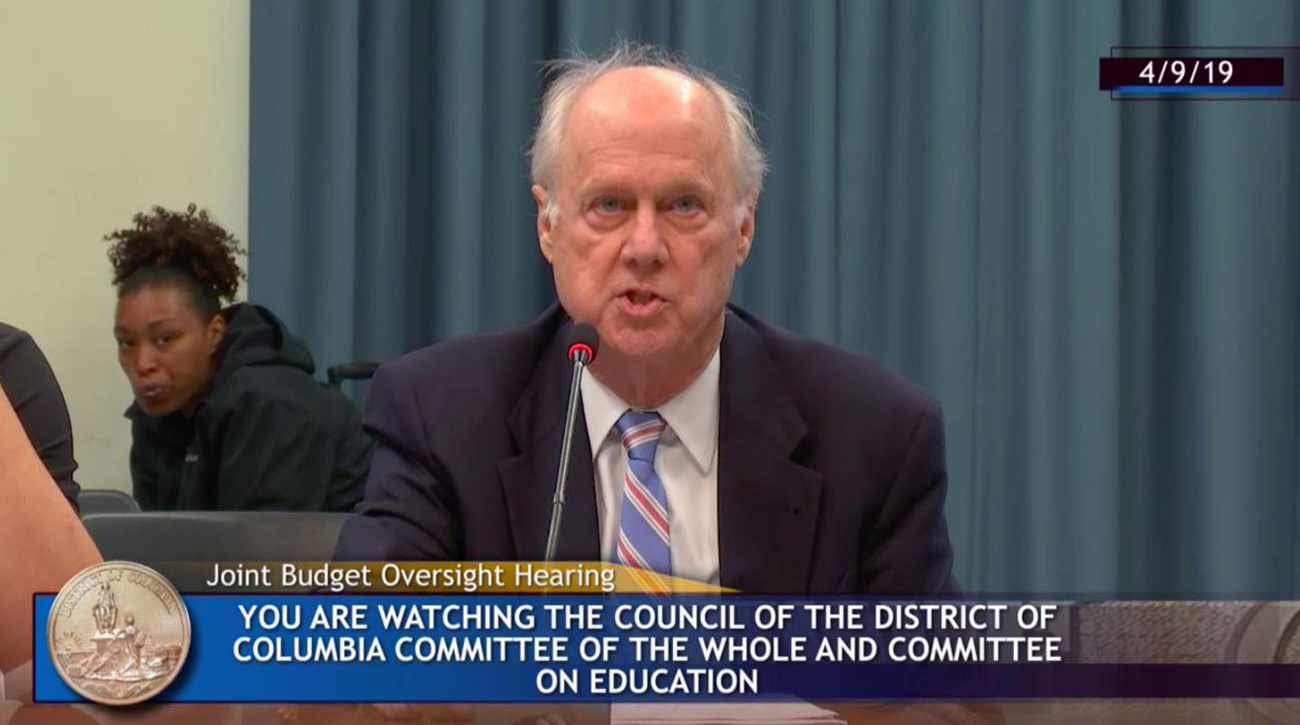Springtime in Washington, D.C. may be best known for cherry blossoms, but it is also the time of year when the city’s annual budget is determined.
As part of that process, the Sumner M. Redstone Global Center for Prevention and Wellness at the GW Milken Institute School of Public Health (Milken Institute SPH), provided testimony to the D.C. City Council aimed at supporting the city’s Fiscal Year 2020 budget priorities to improve nutrition, increase physical activity and address the underlying causes of obesity for all residents. The Redstone Center has recently conducted additional work focused on promoting efforts by the D.C. government to build community resilience by addressing adverse childhood experiences in the context of adverse community environments.
In the Fiscal Year 2020 budget, the D.C. City Council made important investments in programs supported by the Redstone Center and other Milken Institute SPH faculty and staff. These include:
Funding for the Healthy Students Amendments Act: On April 9, William Dietz, MD, chair of the Redstone Center, and Jennifer Sacheck, PhD, MS, chair of the Department of Exercise and Nutrition Sciences at Milken Institute SPH, delivered testimony before D.C. Council’s Education Committee, urging councilmembers to fully fund the Healthy Students Amendments Act (HSAA) (testimony found here and here). Dietz is a commissioner on D.C.’s Healthy Youth and Schools Commission and chairs its Subcommittee on Physical Activity, which was instrumental in making recommendations to improve access to physical activity for D.C. students. These efforts culminated in passage of the HSAA in December 2018. The budget fully funds implementation of the physical activity goals laid out in the bill, including daily recess, as well as provisions to increase participation in school breakfast and update nutrition standards for school lunches. The budget also includes $100,000 for the D.C. Office of Planning to develop a plan for building and managing a central kitchen, improving the capacity of schools to serve healthy and fresh food to D.C. students.
Funding for the Student Fair Access to School Act: Dietz testified before councilmembers and recommended funding for training and professional development on trauma-informed and restorative practices for all school staff in D.C. as envisioned by the Student Fair Access to School Act. Creating trauma-informed schools is a critical intervention that can help children build resilience and bounce forward, even in the face of adversity and trauma.
Funding for Birth to Three for All D.C.: Redstone Center staff also recommended the D.C. City Council support efforts to fully fund several programs included as part of the Birth to Three for All D.C. Act, including the HealthySteps expansion to embed child development experts at two new primary care sites, funds for early childhood provider mental health training through the Healthy Futures program, and Early Head Start Home Visiting.
WIC Program Expansion: Redstone Center staff have also testified in support of the Special Supplemental Nutrition Program for Women, Infants and Children (WIC) Program Expansion Act, which is fully funded in the budget. This new funding will allow for increased participation in WIC and make D.C. a healthier and more equitable city by lowering barriers for small stores to become authorized WIC vendors, particularly in areas of D.C. with few large grocery stores.
In addition to these provisions, the budget passed by the D.C. Council includes funding to expand access to healthy food options at D.C. Department of Parks and Recreation facilities for after-school and summer programs, a pilot project for in-school food preparation, a new grant program for community-based initiatives addressing the social determinants of health, and funding for important nutrition programs such as ProduceRX, Produce Plus, Healthy Corner Stores and Pop-Up Family Markets.
“While more work needs to be done to address the deep inequities in D.C., the FY 2020 budget—if signed into law--puts in place some initiatives that would help all residents gain access to nutritious food, safe places to exercise and other factors that help support good health,” Dietz said.


